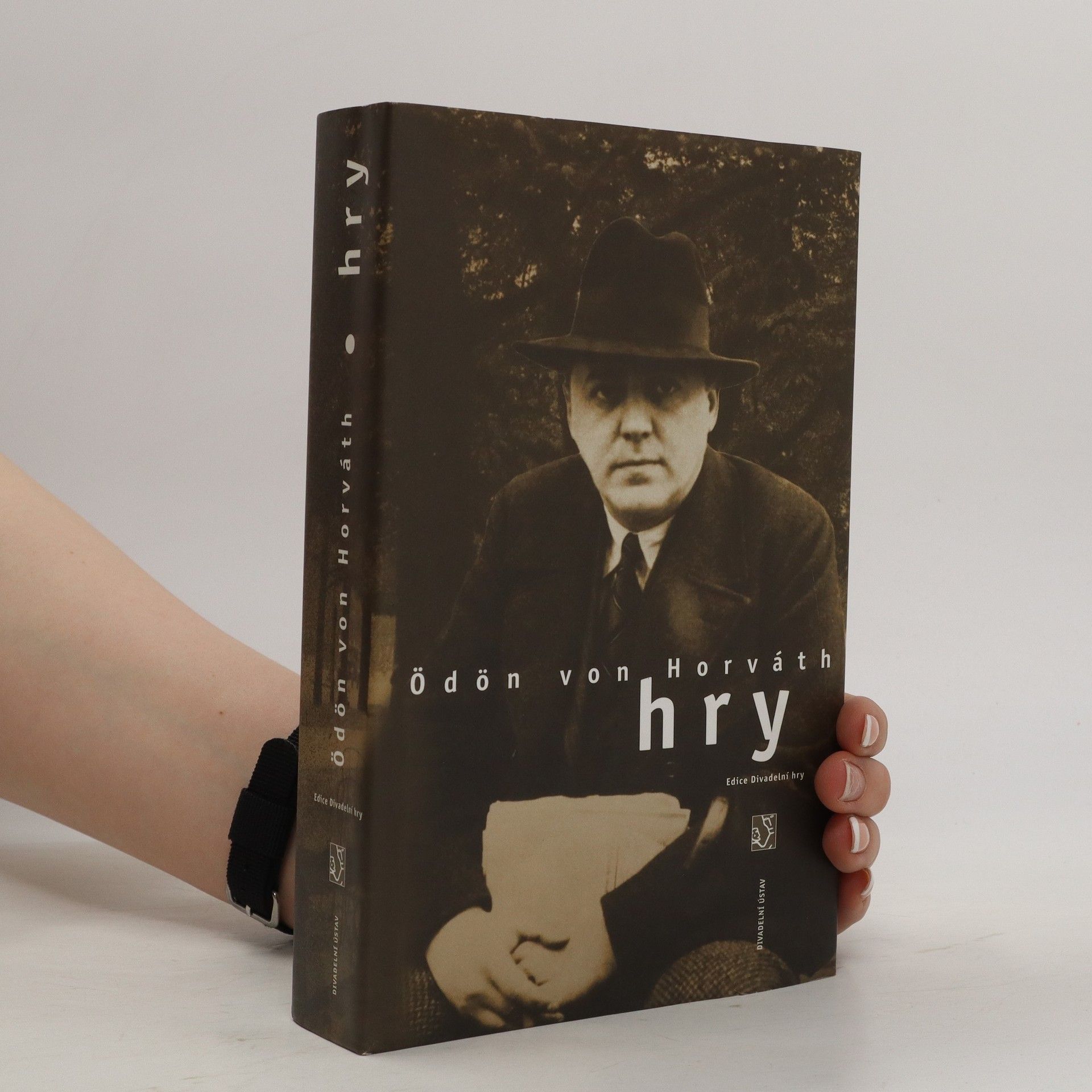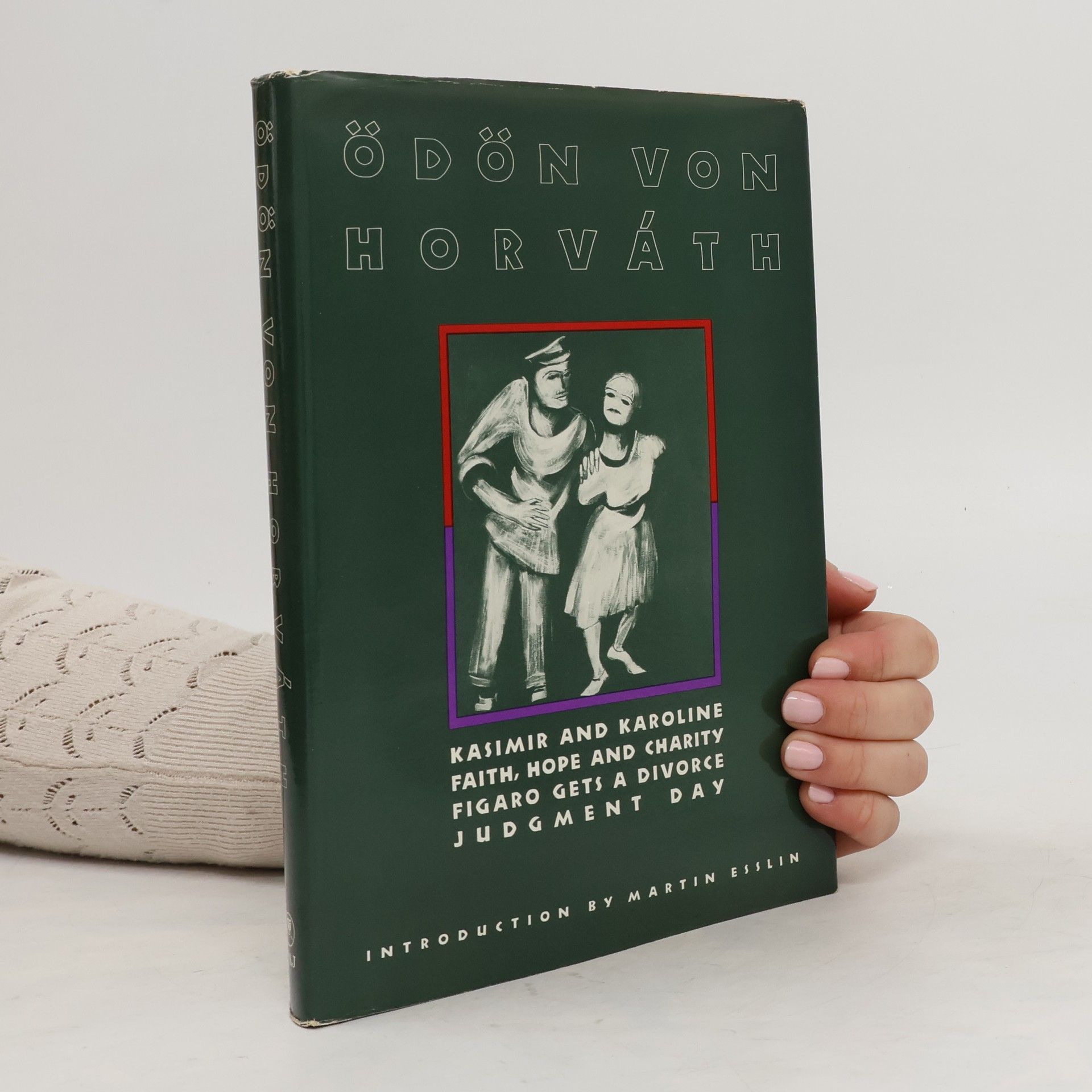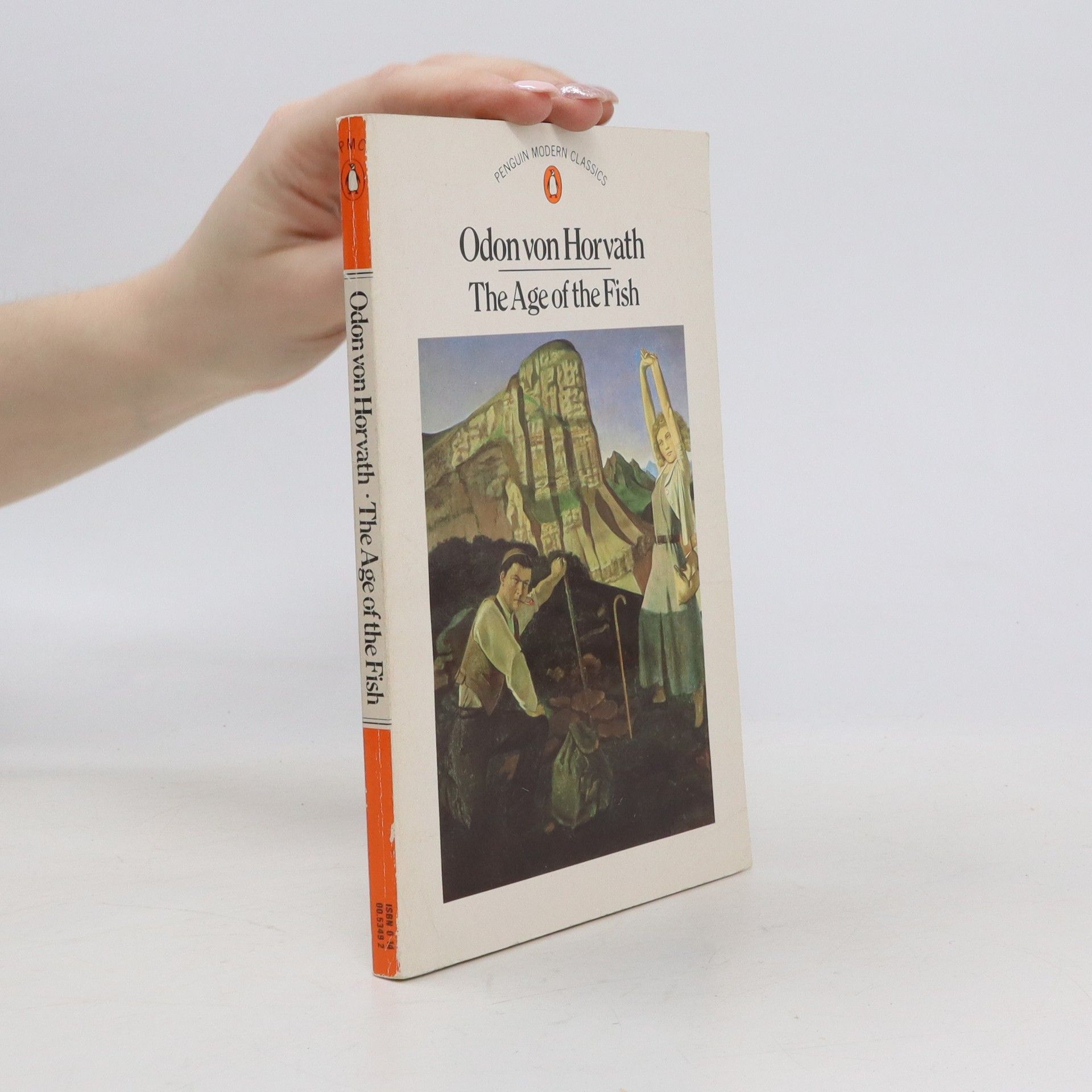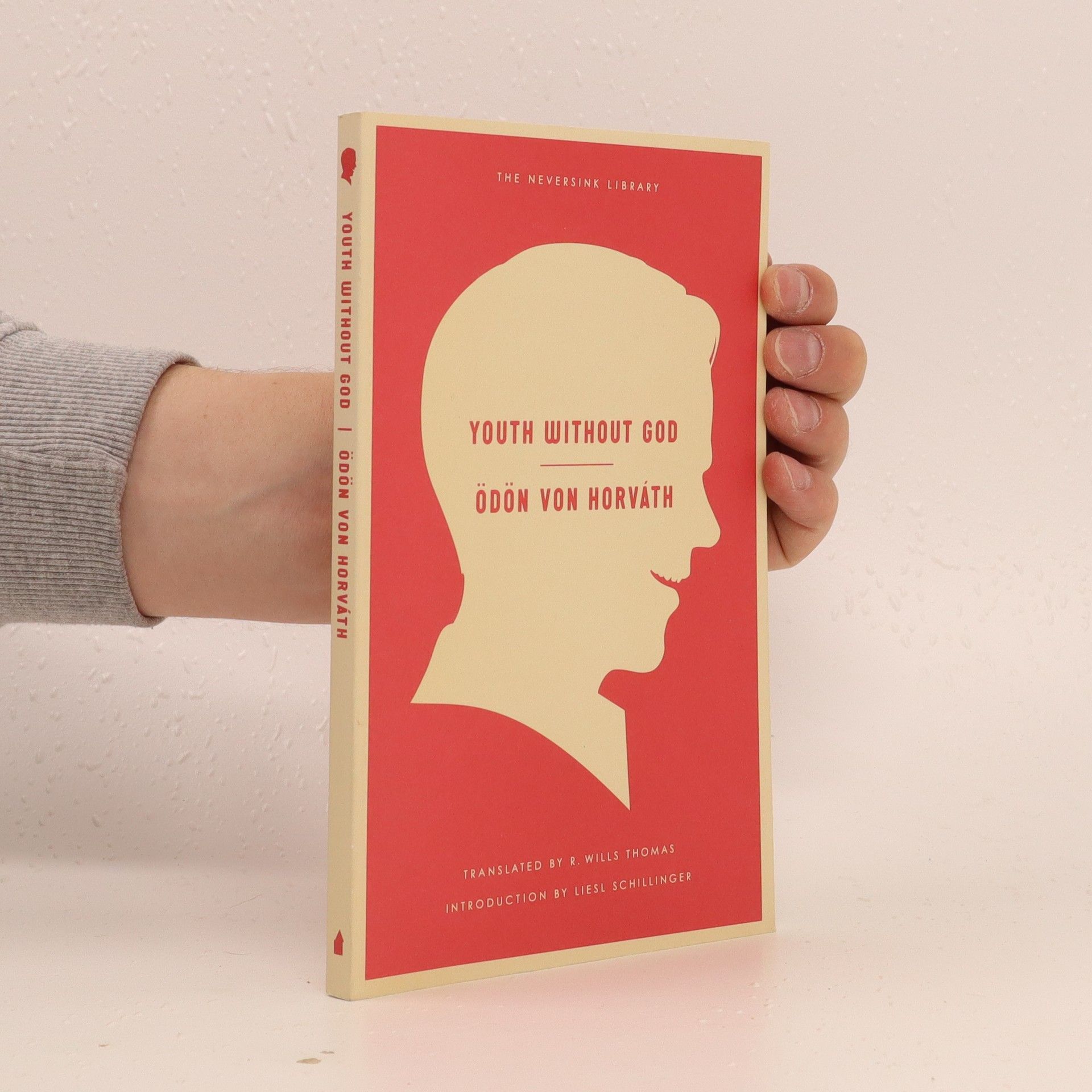Youth without God
- 165bladzijden
- 6 uur lezen
Ödön von Horváth wordt geroemd om zijn scherpe kritiek op de populaire cultuur en politiek, met name zijn vooruitziende waarschuwingen tegen de opkomst van het fascisme. Zijn verhalen verkennen vaak de ijzingwekkende effecten van propaganda op de samenleving, vooral op jonge geesten, en portretteren de strijd om iemands identiteit te behouden te midden van onderdrukkende ideologieën. Door zijn kenmerkende literaire stem ving Horváth de angsten en morele compromissen van zijn tijd. Zijn werken resoneren nog steeds en bieden diepgaande inzichten in de menselijke conditie onder politieke druk.







Tři hry rakouského prozaika a dramatika, jehož díla jsou jakousi moderní uměleckou reinkarnací vídeňské lidově hry (Černý). Ve hře Povídky z Vídeňského lesa je mladá dívka v den svého zasnoubení s počestným vdovcem svedena hejskem a končí jako nahá tanečnice v baru a její dítě hyne nedostatečnou péčí. Hra Neznámá u Seiny líčí neznámou dívku, která poskytne lupiči a vrahu alibi v domnění, že získá jeho náklonnost, tento muž však odejde se svou starou láskou a neznámá končí v řece. Hra Figarův rozvod je míněna jako pokračování Beaumarchaisovy Figarovy svatby a sleduje osudy hraběte Almavivy a jeho sluhy Figara po Velké revoluci.
Text und Materialien
Obsáhlý výbor z divadelních her rakouského dramatika Ödöna von Horvátha, tvůrce moderní lidové hry, který ve svém díle jasnozřivě odhalil povahu nastupujícího fašismu i hrůzně komickou mentalitu tzv. obyčejného člověka a jeho nikdy nekončící touhu po lásce, víře a naději. Obsahuje známé tituly jako Povídky z Vídeňského lesa nebo Kazimír a Karolína, ale i dosud v češtině nevydané nebo méně známé autorovy texty, například Na krásné vyhlídce, Don Juan se vrací z války nebo Sládek, voják černé armády. Vychází ke stému výročí autorova narození.
Kniha obsahuje dva romány: Mládež bez Boha a Dítě naší doby. Předmluvu ke knize napsala Lucy Topoľská.
Výbor z povídkové tvorby rakouského dramatika a spisovatele. V široké škále jeho témat dominuje především 1.světová válka a její následky a vznik fašismu v Německu. Vedle těchto motivů však sleduje ve svých povídkách také přežívání starých měšťáckých představ v nové sociální situaci, ilegální politickou práci, problémy prostituce a nejrůznější kavárenské imprese, ale také rodinná dramata prostých lidí. Povídky jsou psány se svéráznou ironií a s přesvědčením, že lidstvo nelze vychovat a lidská společnost bude mít stále stejné chyby i v daleké budoucnosti.
Bei diesem Werk handelt es sich um eine urheberrechtsfreie Ausgabe. Der Kauf dieser Kindle-Edition beinhaltet die kostenlose, drahtlose Lieferung auf Ihren Kindle oder Ihre Kindle-Apps.